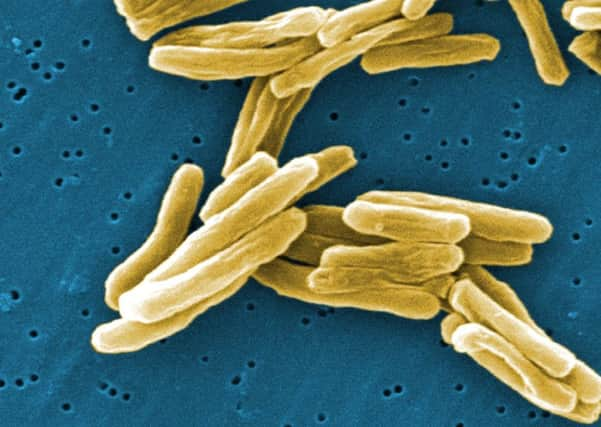Gene find could help TB patients fight '˜superbugs'


The gene, called NucS, has been found to “dramatically” reduce mutation rates in mycobacteria – the infectious microbe which causes TB.
In the journal Nature Communications, scientists from the University of Sussex in Brighton and the Centro Nacional de Biotecnologia in Madrid say the discovery could play a role in understanding the development of antibiotic resistance in patients already suffering from TB.
Advertisement
Hide AdAdvertisement
Hide AdTB, which is spread from person to person through the air, is one of the top ten causes of death worldwide, with 1.8 million people dying from the disease last year.
Drug-resistant strains of TB have already been identified in 105 countries and the researchers involved in this study believe that identification of the key gene, required to suppress mutation rates in mycobacteria, is an important step towards understanding how superbugs develop.
Professor Aidan Doherty, from the University of Sussex, said: “The rise of antibiotic resistance is a major threat to global health and, if we are to limit its impact on infectious diseases, we first need to identify the mechanisms that prevent bacteria from mutating in the first place. This knowledge will then enable us to better understand how pathogens develop into ‘superbugs’.
“Incredibly, for many years it was believed that mycobacteria lacked any mutation avoidance genes.
“Therefore, the discovery that the NucS gene reduces the rate at which mutations occur in these pathogens is a crucial first step towards identifying the genetic factors that influence the onset of antibiotic resistance.
“This will enable scientists and clinicians to screen for strains that are most likely to develop drug resistance and figure out strategies to tackle this serious threat.”
Using a genetic screen, which involved individually knocking out nearly every gene (11,000 genes) in mycobacteria, and screening whether mutant strains grew on a specific antibiotic (rifampicin), the scientists discovered that a DNA repair enzyme, produced by the NucS gene, dramatically reduced mutations from occurring.
The researchers also discovered that genetic variations in the NucS gene significantly influenced the mutation rates in clinically isolated strains of mycobacteria.